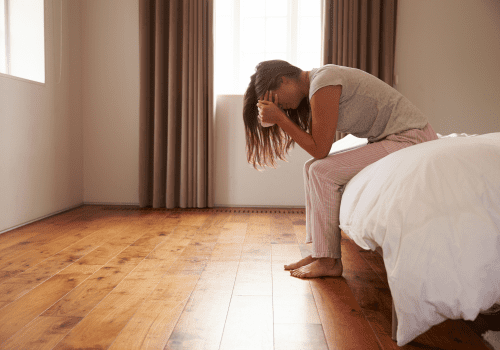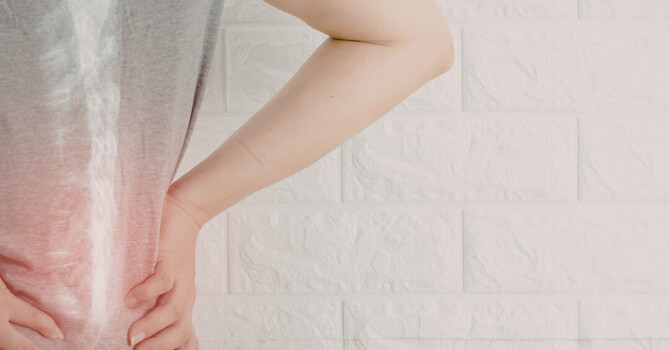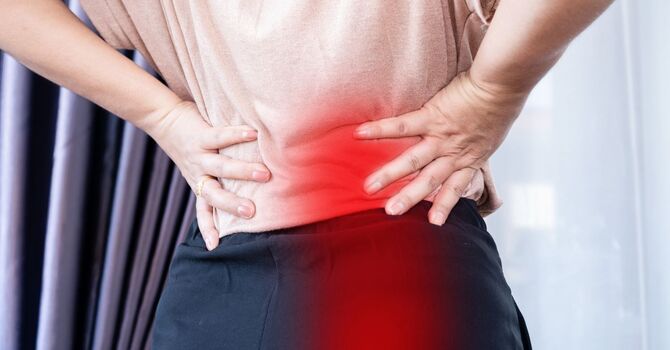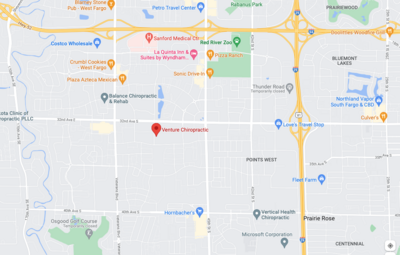
Your baby finally has arrived and it is a time of pure bliss. The snuggles, the coos, the bonding…it has all become so real. But there is something inside of you that just isn’t right. You are emotionally and physically drained from the hours of labor. The sleep deprivation starts to kick in because your little one can’t tell the difference between night and day. If you are breastfeeding, the nipple pain you are experiencing hurts so bad that you may even shed some tears. The feedings and diaper changes are around the clock. Becoming a new mother can be hard at first. As many as 1 in 5 new mothers will suffer from severe depression or anxiety after giving birth, and a woman is significantly more likely to suffer from one of these conditions during her first year as a mother than at any other time in her life.1
Newborns are not always sunshine and rainbows! Many new moms suffer from the baby blues. This is usually noted as a normal, short-lived period of time where moms will feel sad, weepy, and easily agitated. The wide range of emotions are triggered by hormonal changes after giving birth. There is a tremendous amount of pressure to feel happy and in immediate love after baby arrives. Women do not always talk about baby blues because there can be guilt and shame to feel this way. Moms can feel something is wrong with them and don’t talk about their feelings. It is very important to share these feelings with your doctor, significant other, friend, or person you feel comfortable talking too. When baby blues last longer than a few weeks or the feelings intensify this can be labeled as clinical Postpartum Depression. Please seek help and don’t try to self-manage during this time. It is OKAY to ask for HELP. People around you are usually genuinely happy to help, but don’t always ask because they do not want to bother you. Again, please please please ASK! The first part of this blog series will be on how hormones contribute. In the upcoming weeks we will be touching on topics such as breastfeeding, nutrition, and physical changes.
The Hormones
There are many factors that can contribute towards postpartum depression. First, the hormonal roller coaster after giving birth is one that no one can prepare you for. The Estrogen levels during pregnancy are approximately 100 times what they are during your period.2 After giving birth, estrogen levels decrease dramatically (especially within the first 24 hours). The levels drop even further if you are breastfeeding and you may even experience hot flashes and vaginal dryness. Dr. Allison Hill, a board-certified OB/GYN in Los Angeles compares breastfeeding hormones to that of a woman in menopause when she explains the hormonal shift after pregnancy to her patients.2
The levels of progesterone increase as well when you are pregnant and don’t actually return to normal until your normal menstrual cycle returns. You can expect your period to return about 6-8 weeks after birth if you are not breastfeeding. If you are breastfeeding your period won’t return as quickly. For some women, they might not have their period the entire time they breast feed.
The hormone called prolactin increases up to 20 times more than pre-pregnancy levels and remains high until breastfeeding ends.2 This hormone helps the breast glands to produce milk for breastfeeding. Prolactin levels fluctuate during the day and are the highest at night and times of stress.
You may even notice that when your baby is crying, you will experience milk discharge or milk letdown. The letdown reflex is due to the Oxytocin which helps you relax and helped with the pain during labor. The hormone is known as the “bonding hormone” and during the first weeks of lactation, is still being tailored to respond to the sensation of your baby nursing.2 Frequent nursing will fix this.
So what can you do while your body is trying to adjust its hormones after giving birth? A healthy body regulates hormones more efficiently. By working to replenish the nutritional losses that are a part pregnancy, delivery and lactation as well as reducing the exposures to toxic elements that you have control over, you can reduce your risk of experiencing periods of postpartum depression. Reducing your exposure to the following chemicals is a big step toward optimizing your health and hormone regulations.
- Use only organic based whole foods when you can. Buy hormone free meats products where possible. If you can’t buy organic, wash your food well to rid the pesticides.
- To help you decide what produce to purchase organic to reduce pesticide and toxin exposure check out the Dirty Dozen list each year to decide what organic produce to splurge on.
- Avoid all pesticides, herbicides, and fungicides use around your home.
- Have a good reverse osmosis water filter for your source of water.
- Avoid plastic goods. Use glass or ceramics whenever possible to store food.
- Do not microwave food in plastic containers, and especially avoid the use of plastic wrap to cover food for microwaving.
- Don’t use fabric softeners as it puts petrochemicals right on your skin. High quality essential oils can replace artificial perfumes.
- Use a simple laundry, dish detergent and home cleaners with less chemicals.
- Use organic soaps and toothpastes. Avoid fluoride.
- Avoid blue cohosh, vitex, saw palmetto berry, licorice, hops, rhodiola rose root, black cohosh, dong quai, red clover blossom and motherwort leaf as they all increase levels of estrogen.
- Strictly avoid soy!
Don’t be afraid to reach out for help during these tough times. You want to cherish these moments that only will last so long.
I am here to help you with navigate the unknowns and help you find answers. If I do not know the answer or am unable to help I have multiple resources in our community that I am happy to refer you to so we can find the answers you are seeking. This is a team effort. Contact our office, 701-730-3867, for further details of what may be a good fit for you because it is never too early in life to work toward being the best version of YOU! Life changes drastically with kids, but you do not have to feel you have lost who you are in the process!
~~Melanie Dockter, DC, CACCP
References:
- Gregorie, Carolyn. Postpartum Depression Is Fundamentally Different From Other Mood Disorders. Huffington Post. 1/27/2017
- Revelant, Julie. Your Pregnancy hormones, explained. Fox News Health. May 30,2012




